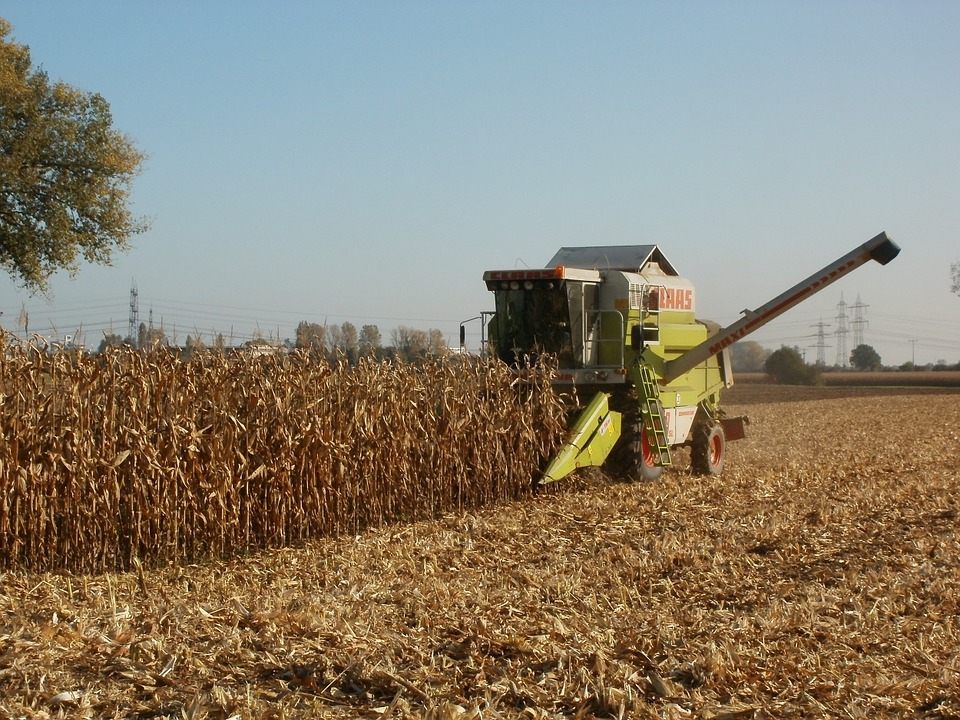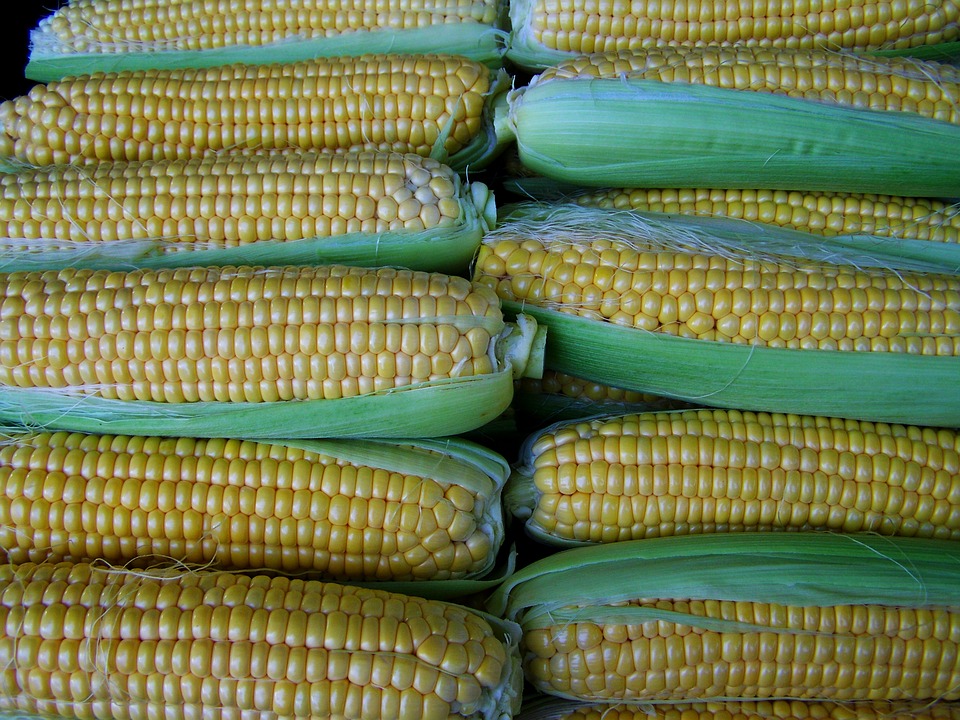This comprehensive guide will delve into the question of whether cats can eat corn, exploring the nutritional value, potential risks, and safe ways to incorporate this popular grain into your feline friend's diet. We'll cover the different types of corn, their suitability for cats, and address common concerns regarding digestive issues, allergies, and more. By the end, you'll have a clear understanding of how to navigate the world of corn and keep your cat happy and healthy.
Part 1: Understanding Corn and Its Nutritional Value

1.1. The Basics of Corn
Corn, scientifically known as Zea mays, is a cereal grain that originated in Mexico and has become a global staple. It's a versatile ingredient found in various forms, from the sweet corn on the cob we enjoy in summer to the cornmeal used in baking and the cornflakes we eat for breakfast. Corn is a member of the grass family and its kernels are rich in carbohydrates, making it a valuable source of energy.
1.2. Nutritional Profile of Corn
Corn is not just carbohydrates; it also contains essential vitamins and minerals that play a crucial role in maintaining good health. A 100-gram serving of corn provides:
- Vitamins: Vitamin A, thiamin (Vitamin B1), riboflavin (Vitamin B2), niacin (Vitamin B3), vitamin E, pantothenic acid (Vitamin B5)
- Minerals: Magnesium, potassium, phosphorus, zinc, iron, manganese, copper
- Antioxidants: Corn is also a source of antioxidants like lutein and zeaxanthin, which may offer protection against certain health issues.
1.3. Corn in Human Diets
Corn is a fundamental ingredient in many human foods, including breakfast cereals, bread, tortillas, and even biofuel. Its adaptability and affordability make it a popular choice for food manufacturers.
1.4. The Role of Corn in Animal Feed
Beyond human consumption, corn is a significant component of animal feed, particularly for livestock like chickens, pigs, and cows. It serves as a cost-effective source of energy and nutrients for these animals.
Part 2: Can Cats Eat Corn Safely?

2.1. The Debate on Corn in Cat Food
The presence of corn in commercial cat food has been a topic of debate for years. Some argue that corn is a cheap filler with limited nutritional value for cats, while others maintain that it's a safe and readily available ingredient.
2.2. Potential Risks of Corn for Cats
- Digestive Issues: Corn can be difficult for some cats to digest due to its high starch content. This can lead to gastrointestinal upset, including bloating, gas, and diarrhoea, especially in cats with sensitive stomachs.
- Allergies: While not as common as other food allergies, some cats can develop allergies to corn. This can manifest as skin problems like itching, redness, and hair loss, as well as ear infections, and digestive upset.
- Weight Gain: Corn's high carbohydrate content can contribute to weight gain if not balanced with a low-calorie diet and sufficient exercise.
- Nutrient Deficiency: While corn provides some nutrients, it doesn't offer the same level of complete nutrition found in meat-based ingredients. This can lead to potential deficiencies in essential nutrients like taurine, an amino acid crucial for feline health.
2.3. Safe Consumption of Corn
While corn can pose risks, it doesn't mean it's completely off-limits. Moderation is key. Here are some guidelines for safe consumption:
- Avoid Raw Corn: Raw corn is difficult for cats to digest and can even be toxic.
- Cooked Corn: Cooked corn, such as boiled or steamed, is easier to digest and safer for cats. However, it's essential to cook it thoroughly without added seasonings, butter, or oil.
- Small Portions: Offer only small amounts of cooked corn as a treat, not as a staple food.
- Monitor for Reactions: Observe your cat for any signs of adverse reactions after consuming corn, such as vomiting, diarrhoea, or lethargy. If you notice any of these symptoms, stop feeding your cat corn and consult your veterinarian.
Part 3: Types of Corn and Their Suitability for Cats

3.1. Sweet Corn
Sweet corn, with its naturally sweet flavour and juicy kernels, is a popular choice for human consumption. However, its suitability for cats is debatable. While cooked sweet corn may be safe in moderation, it's best to avoid offering it regularly due to its potential for digestive upset.
3.2. Field Corn
Field corn, also known as dent corn, is a common ingredient in many commercial cat foods. It's a cheaper source of carbohydrates compared to animal protein, but its high starch content and lower digestibility for cats have sparked concerns.
3.3. Popcorn
Popcorn, a type of corn that pops when heated, should be avoided by cats. The kernels can be a choking hazard, and the buttery flavourings often used on popcorn are unsuitable for felines.
3.4. Cornmeal
Cornmeal, a processed form of corn made by grinding dried kernels, is used in various foods, including cornbread, polenta, and some pet foods. While it may not be as problematic as raw corn, it's still best to avoid offering it to cats due to its potential for digestive issues.
Part 4: Alternatives to Corn in Cat Food
4.1. Grain-Free Cat Food
Grain-free cat food options have gained popularity in recent years due to concerns surrounding the digestibility and potential allergies associated with grains like corn, wheat, and rice. These formulas typically use protein sources like chicken, fish, or turkey as their primary ingredients, eliminating grains altogether.
4.2. Potato and Pea-Based Cat Food
Some cat food manufacturers have opted for potatoes and peas as alternative sources of carbohydrates in their formulas. These ingredients are often considered more digestible and hypoallergenic than corn, making them a suitable choice for cats with sensitivities.
4.3. Choosing the Right Cat Food
When selecting cat food, it's essential to read the ingredient list carefully. Look for formulas that feature meat as the first ingredient and avoid those with corn as a primary ingredient. You can also look for "grain-free" or "potato and pea-based" options. Consulting your veterinarian is always a good idea to find the best food for your cat's specific needs.
Part 5: Signs of Corn Allergies in Cats
5.1. Recognizing the Symptoms
If your cat has a corn allergy, you may notice the following symptoms:
- Skin Problems: Itching, redness, hair loss, especially around the ears, face, and paws.
- Ear Infections: Frequent ear infections or inflammation.
- Digestive Issues: Vomiting, diarrhoea, gas, or constipation.
- Excessive Grooming: Increased licking or scratching, which can lead to skin irritation and hair loss.
- Sneezing or Coughing: If the allergy affects the respiratory system.
- Lethargy or Loss of Appetite: These can be signs of a severe allergic reaction.
5.2. Consulting a Veterinarian
If you suspect your cat has a corn allergy, it's crucial to consult your veterinarian for a proper diagnosis and treatment plan. They may recommend a hypoallergenic diet, medication, or other therapies to manage the allergy.
Part 6: FAQs
6.1. Can cats eat corn on the cob?
No, it's not recommended to give cats corn on the cob. It's difficult for them to digest and can pose a choking hazard. The cob itself can also cause intestinal blockages.
6.2. Is corn good for cats with kidney disease?
Corn is not considered beneficial for cats with kidney disease. It's low in protein and high in phosphorus, which can exacerbate kidney issues. Consult your veterinarian for a specific dietary plan for your cat with kidney disease.
6.3. What are the best snacks for cats?
Healthy snacks for cats include cooked meat, fish, and occasional treats like catnip or small pieces of cooked chicken. Avoid giving them sugary or salty snacks, as these are not suitable for their digestive system.
6.4. What happens if a cat eats corn?
Most healthy cats can tolerate small amounts of cooked corn without any issues. However, some may experience digestive upset or allergic reactions. If your cat exhibits any signs of discomfort, stop feeding it corn and consult your veterinarian.
6.5. Can cats eat canned corn?
Canned corn is typically high in salt and sugar, which are not suitable for cats. It's best to avoid offering canned corn to your feline friend. Stick to plain, cooked corn without any added seasonings.
6.6. Is corn a good source of fiber for cats?
Corn is not a good source of fiber for cats. Other ingredients like pumpkin and sweet potato offer better fiber content, which can help with digestion and prevent constipation.
6.7. Should I feed my cat corn if it's on sale?
If you're on a tight budget, choosing a high-quality cat food with meat as the first ingredient, even if it's slightly more expensive, is a better option than opting for a cheaper brand with corn as a primary ingredient. Remember, your cat's health is paramount, and investing in a good-quality diet can pay off in the long run.
Everyone is watching
-

Are Cat Ribs Flexible? Understanding Their Anatomy
CATS & KITTENSThis article delves into the fascinating world of feline anatomy, exploring the flexibility of cat ribs and ho...
-

Can Cats Eat Bananas? (Everything You Need to Know)
CATS & KITTENSThis article dives into the intriguing question of whether cats can safely enjoy the sweet, yellow fruit, bana...
-

Cat Lifespan: How Long Do Cats Live?
CATS & KITTENSThis comprehensive guide explores the factors influencing the lifespan of our feline companions, providing ins...
-

Can Cats Get COVID-19? What You Need to Know
CATS & KITTENSThis article will delve into the fascinating world of feline COVID-19 susceptibility. We'll explore whether ca...
-

Can Cats Eat Eggs? A Complete Guide to Egg Safety for Your Feline Friend
CATS & KITTENSWhen it comes to treating our furry companions, we all want to ensure we're doing what's best for them. Eggs...
